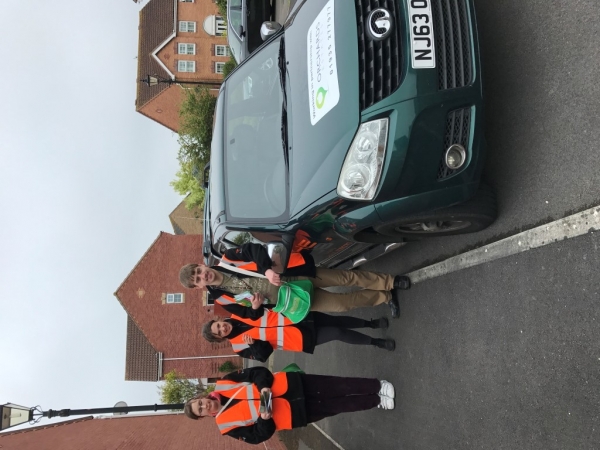Keeping your dog safe during fireworks season - expert advice from the team at Guide Dogs
With fireworks filling our skies for Bonfire Night, Diwali and New Year’s Eve soon after, it can be a stressful time for dogs that don’t like loud noises.
How can you help keep them calm and safe? David Grice, Head of Canine Training and Behaviour at national charity Guide Dogs, shares his tips how to help dogs before, during and after Fireworks night.
Step One – Know if your dog is stressed
David says: “There are a number of warning signs to indicate that your dog fears fireworks, but every dog is different, and they show anxiety in their own way. Key to look out for is whether a dog is trembling, shaking or hiding which you might expect, but behaviours such as restlessness, destructiveness or attention-seeking can also signify anxiety. “
Step Two – Help to reduce the shock of Fireworks
“On the days leading up to firework-filled parties taking place nearby, you can make sure you are as prepared as possible to reduce the impact on your pup.
“Buy plug in adaptors that release pheromones that can help relax your dog. Plug the adaptor about a week before the start of firework season to allow the pheromones to spread around the house. Also try getting your dog used to the TV or radio being louder than usual by gradually increasing the sounds levels in the lead up to the night.
“Check with neighbours if they are planning a fireworks party and you can find information about displays near you online or on social media. If lots of fireworks are expected nearby you may want to see if a friend or relative would like you and a four-legged visitor for the night.”
Step Three – Help your dog to feel safe on the day
“On the day you are expecting fireworks to take place, make sure your dog has a good walk before dark, so they are tired and relaxed for the evening. You should also feed your pup earlier than normal, so they can relieve themselves before the fireworks start.
“Hold back a portion of their evening meal and put this into a kong for your dog to have just before fireworks are likely to start, you can also give your dog a chew to keep them busy and distracted during fireworks.
“Remember it’s not just the sound that can upset our dogs, the flashing lights and smell of burning can also cause problems. Try closing all the curtains and playing an action film to cover up the flashing lights. Popping a lavender plant outside your back door can help mask the smell which can last for days!
“Make sure you have everything you need for the evening, so you can stay at home with your dog, and prepare an area for your dog to go if it becomes scared. If they already have a puppy crate, cover it with a blanket to make a quiet, dark den. You could also use a table or a cupboard under the stairs with an open door and place a TV or radio to help hide the noise of fireworks. Try to leave the TV or radio on all night, you never know when fireworks will go off.”
Step Four – Make sure your dog is happy after fireworks have finished
“There’s often so much attention on how to help dogs during Fireworks, but how we support them afterwards is just as important. It’s a good idea to allow your pup to leave its hiding place as soon it feels safe and ready and be prepared that your dog may have an accident overnight as it may have been too scared to relieve itself.
“It helps to act as if nothing has happened - don’t make a big fuss of the fireworks ending and if your pup is worried about going out into the garden or for a walk the next day, use treats to reward it for going out to rebuild a positive association.
“You may need to keep your dog on a lead when walking for a few days after a firework night and remember that fireworks can last for more than just one night, so be prepared for the unexpected!
“Consider preparations for next year. You can find sound tracks and playlists on line to get your dog used to them in plenty of time for next year. Even if your dog appeared fine over the season, play some firework sounds quietly in the background while you play with a toy or give them a chew, this will help prevent them developing issues in the future.”




Share this with
Email
Facebook
Messenger
Twitter
Pinterest
LinkedIn
Copy this link